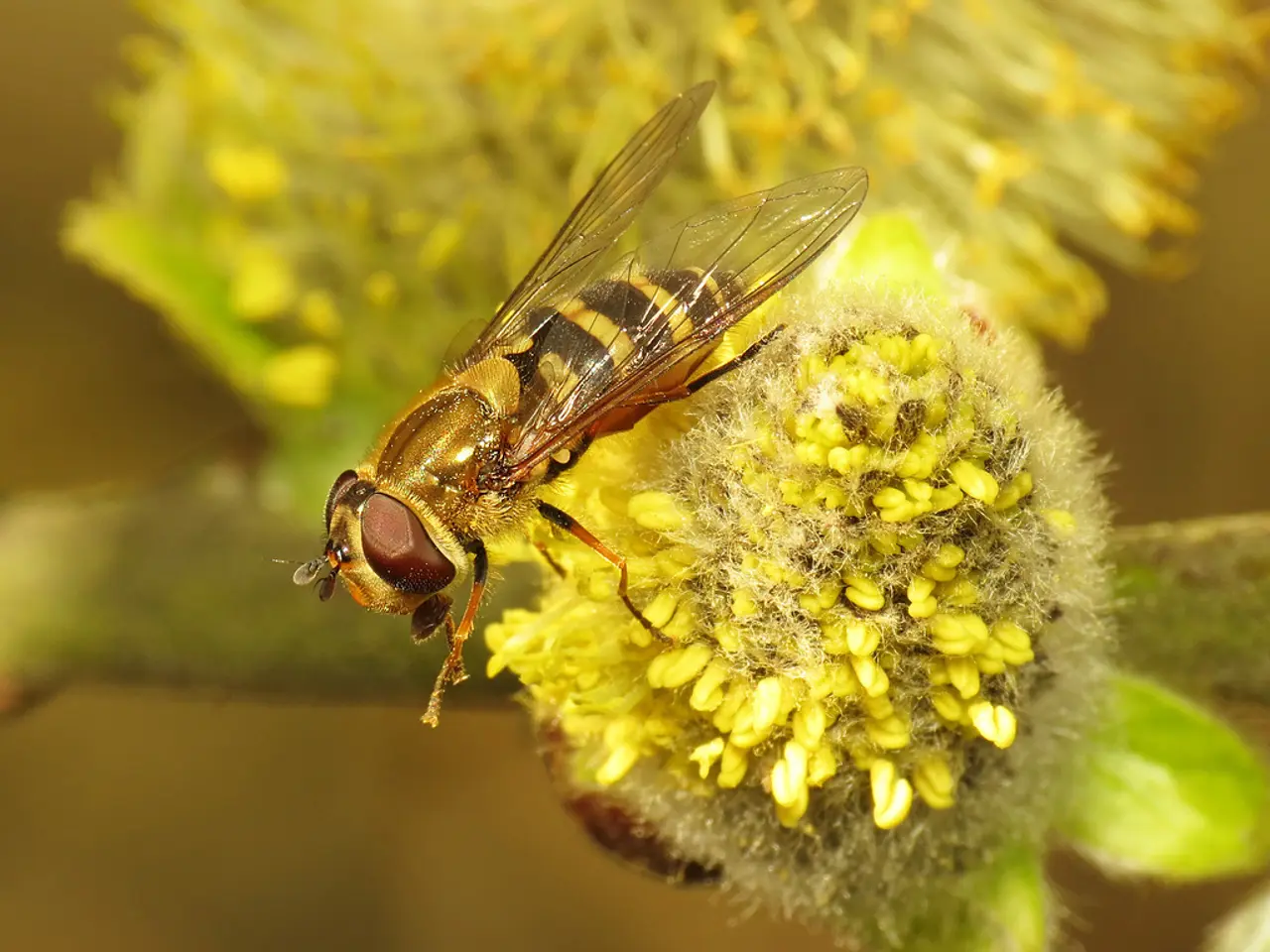Bee Venom's Surprising Impact on Blood Vessels and Potential Medical Uses
A study led by the Autonomous University of Barcelona has uncovered how bee venom, or apitoxin, affects blood vessels. The research, published recently, reveals that both apitoxin and its main component, melittin, impact cell viability and endothelial relaxation capacity, leading to decreased blood vessel dilation.
Bee venom is primarily used by worker bees of Apis mellifera for defence against predators and threats to their hive. The study found that even small doses of apitoxin can make blood vessels dilate less, suggesting that vulnerable individuals could be affected by fewer bee stings than previously thought. This is due to the venom's ability to alter the functioning of blood vessels, leading to vascular alterations in some cases.
The study also suggests potential therapeutic uses for bee venom in certain vascular disorders and other diseases, such as cancer. This is because apitoxin helps regulate nitric oxide, a molecule that plays a crucial role in vascular function. Its components, like histamine, can cause local blood vessel dilation and increased permeability, leading to enhanced blood flow and inflammation modulation. Additionally, apitoxin may have anti-inflammatory and pain-relieving effects, making it potentially useful in skin regeneration and treatment of insect stings, burns, and certain inflammatory diseases.
While apitoxin has potential medical applications, its toxicity can cause allergic reactions in humans. Further research is needed to fully understand and harness its therapeutic potential. The study, led by the Autonomous University of Barcelona, highlights the complex interplay between bee venom and the human vascular system, opening avenues for potential medical applications in vascular disorders and other diseases.
Read also:
- Capella Nursing Students Gear Up for Crucial FPX 4050 Assessments
- Comprehensive Overview of Addressing Traumatic Brain Injuries (TBIs)
- Enhanced Health Services Provisioned by San Diego Academic Health Partnership Continues During COVID-19 and Beyond
- Vaccination drive targeting infants under 6 months old against bronchiolitis in the region of Andalucia







